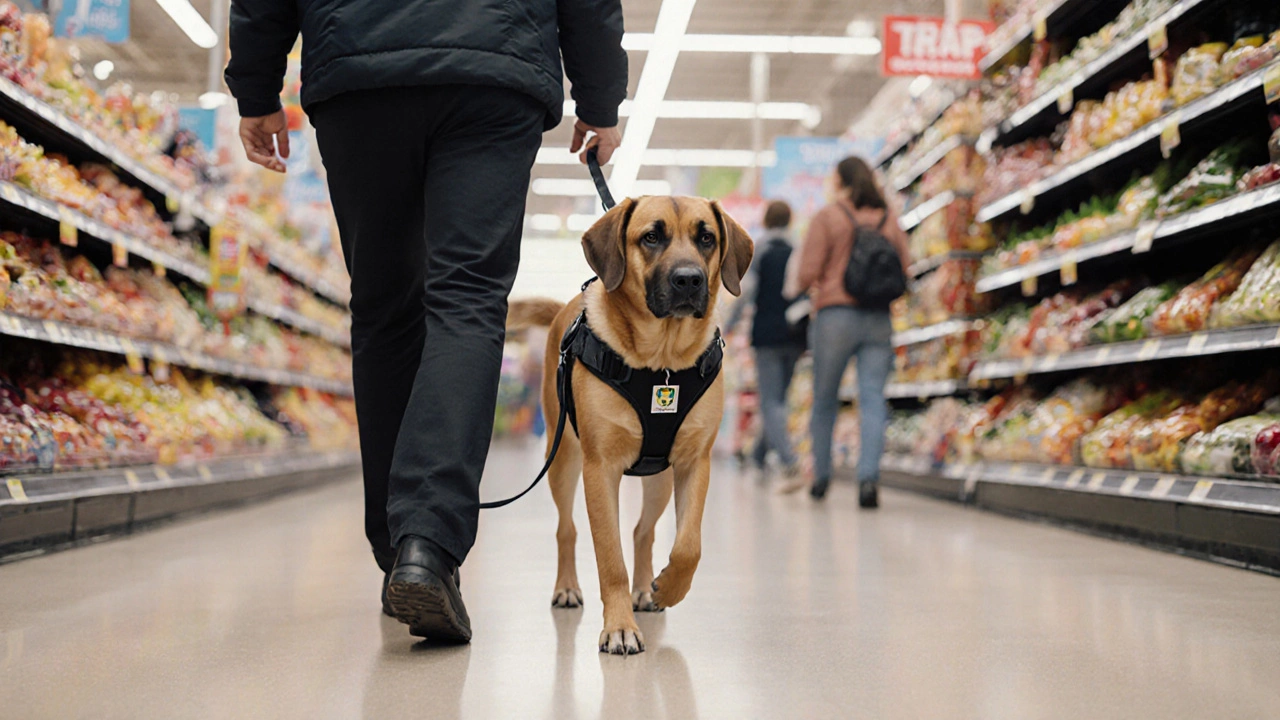Service Dogs NC: What You Need to Know About Trained Assistance Dogs in North Carolina
When we talk about service dogs, canines specially trained to assist people with disabilities by performing specific tasks. Also known as assistance dogs, they’re not pets—they’re medical equipment with fur. In North Carolina, these dogs work alongside people with mobility issues, diabetes, PTSD, seizures, and more, helping them live independently. Unlike emotional support animals, service dogs are legally protected under the ADA and can go anywhere the public can, from grocery stores to airplanes.
What makes a dog a true service dog isn’t the breed or the vest—it’s the training. A service dog, a dog trained to perform tasks directly related to a person’s disability must be able to do things like alert to low blood sugar, retrieve dropped medication, block someone during a panic attack, or guide a visually impaired person around obstacles. In North Carolina, you won’t find official certification registries, but the dog must be under control and trained to behave in public. Many handlers train their own dogs, while others work with local organizations like Canine Companions for Independence or Service Dogs of North Carolina—though waitlists can be long.
People often confuse service dogs with therapy dogs or emotional support animals. A therapy dog, a dog that provides comfort in hospitals, schools, or disaster areas doesn’t have public access rights. And an emotional support animal, a pet that offers comfort through its presence but isn’t task-trained can’t go into restaurants or on planes without special permission. In NC, landlords must allow emotional support animals under the Fair Housing Act, but businesses don’t have to let them in. Only service dogs get full access.
North Carolina doesn’t require registration or ID cards for service dogs, but handlers often carry a letter from a healthcare provider to avoid arguments. Some local businesses still ask for proof—know your rights. If a dog is barking, growling, or not housebroken, it’s not a service dog under the law. And no, you can’t just buy a vest online and call your dog a service animal. Real service dogs spend months, sometimes years, learning precise behaviors. The work is intense, and the bond is deep.
What you’ll find in the posts below are real stories and practical advice from people who live with service dogs every day. You’ll read about training challenges, public access experiences, and how to choose the right dog for the job. Whether you’re considering getting a service dog in North Carolina, already have one, or just want to understand what these dogs do, this collection gives you the facts—not the fluff.

Are Dogs Allowed in Stores in North Carolina? What You Need to Know
Learn the real rules about bringing dogs into stores in North Carolina. Understand service dog rights, why pets are often banned, and where you actually can take your dog.
View more